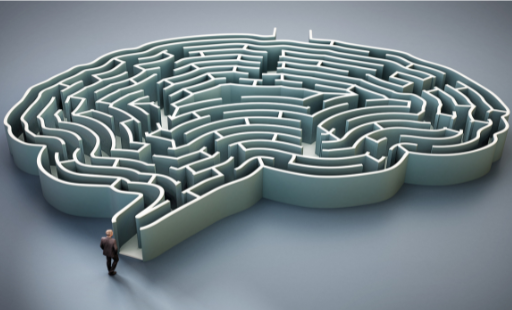What Does a Brain Injury Look Like?
by Sarah Gaffney
Brain injury symptoms can look very similar to symptoms for other conditions, such as substance use disorder and mental health disorders; and brain injuries can happen in many ways — you can have a brain injury without ever hitting your head! Because of this overlap in symptoms, it is important to share any events that may have impacted your brain with your healthcare providers for further screening.
Brain injuries happen a lot in car accidents, falls, and assaults — even concussions can have long-term effects on the brain. There are also non-traumatic causes such as diseases (including Covid-19), strokes, and tumors.
Brain injuries can also happen when the brain doesn’t get enough oxygen, including overdoses, poisonings, near drownings, and other medical emergencies such as when a person’s heart stops or they stop breathing. Sometimes people experience symptoms right away, and other times it can take weeks or months for symptoms to show up.
Some symptoms of brain injury include:
Problems with Memory:
Many brain injury survivors struggle with their memory — possibly both short- and long-term. You might easily forget someone you’ve met, something you’ve read or been told, or important things you need to do, such as when to go to work, take medications, or be somewhere for an appointment.
Delayed Processing:
After a brain injury, it can take longer to process what someone is saying, and it can often be hard to follow conversations and multi-step instructions.
Attention Problems:
It can be hard to concentrate and complete tasks. You might also notice that it’s hard to focus in loud places, and you might find that you are easily distracted.
Impulsive Behavior:
Many people struggle with inhibition and impulsivity after a brain injury. This could look like interrupting conversations, not following directions, or saying and doing things without thinking — even when you know you shouldn’t.
Physical Challenges:
Pain, fatigue, light sensitivity, hearing and vision changes, and difficulty with moving and coordination can all happen after a brain injury.
Language Problems:
We communicate in many different ways, and after a brain injury, there are often challenges with speaking, understanding, reading, and writing.
Organization:
Sometimes it is very hard to stay organized after a brain injury. You might have trouble finishing or starting a task, sticking to a schedule, and doing important things on time, such as paying bills.
Mental Inflexibility:
This might look like having trouble with decision-making, changing a decision after receiving new information, or being open to learning new ways to do things. Sometimes this involves decreased self-awareness, for example, being told by several others you have behaviors that you don’t think exist, and difficulties with personal insight. Mental inflexibility is a common symptom of brain injury that can be a challenge to success in recovery.
Emotional Shifts (Ups and Downs):
This can include feeling anxious, irritable, depressed, and being prone to overreactions.
Issues with Sleep:
Problems with sleep are very common after a brain injury. You might sleep a lot, take more naps than usual, or have trouble falling asleep.
Brain injury can impact every part of who we are. There are many other brain injury symptoms, and if you think you may have experienced a brain injury, it’s important to seek medical attention as soon as you can.
Brain Injury Association of America — Maine’s resource facilitation team is here to help with navigating life after brain injury. BIAA-ME offers information and resource services, as well as long-term one-on-one support through NeuroResource Facilitation, and these services are FREE.
Call BIAA-ME’s Brain Injury Information Center at 1-800-444-6443 for help navigating brain injury resources, and stay tuned for our next article discussing accommodations that can be made if you are experiencing some of these symptoms.



